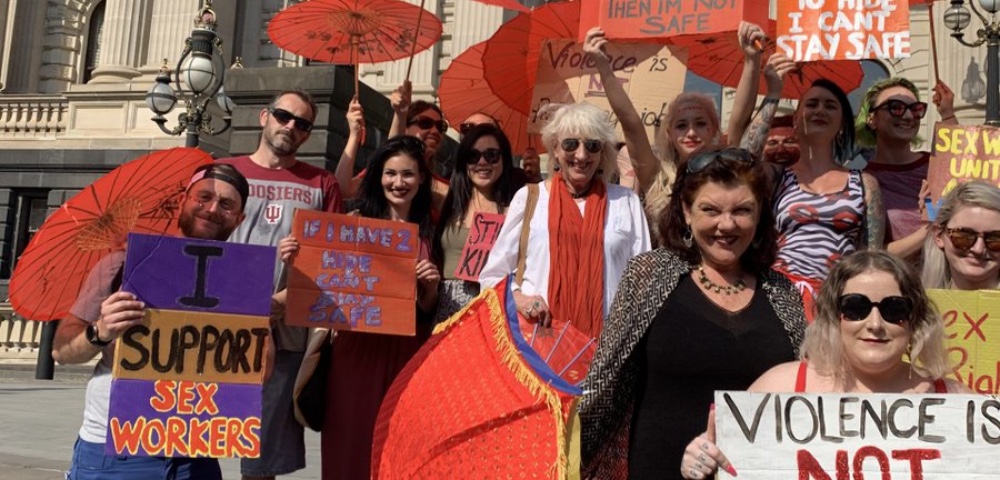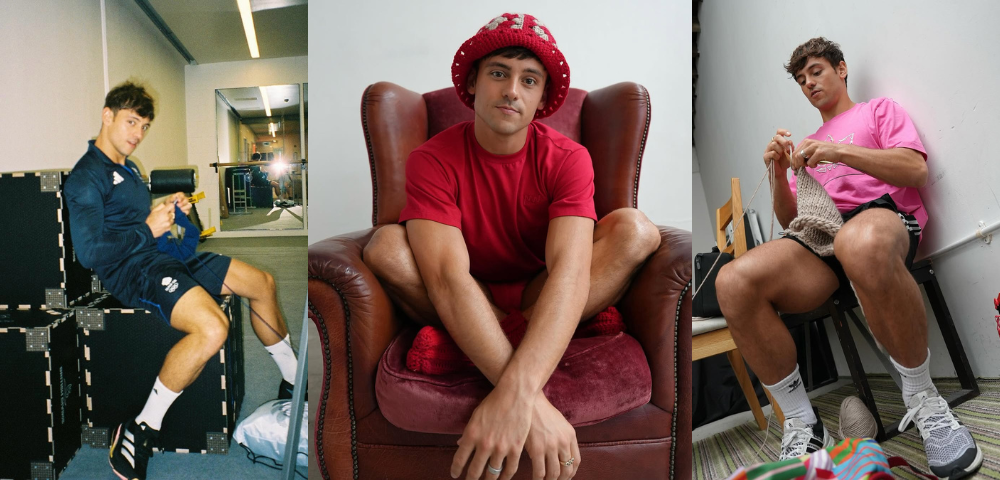
After Decriminalisation, Local Councils Are The Next Battle For Sex Workers

By Matthew Roberts
On 10 February, the Victoria Parliament passed the Sex Work Decriminalisation Bill 2021, becoming the fourth jurisdiction in the world to decriminalise sex work.
The previous licensing system of sex work, which restricted the location and advertising of sex work, imposed high licensing fees, and forced sex workers to register with a government agency.
Under this system, up to 80% of gay male sex workers were effectively ‘illegal’, and fearful of reporting crimes to police. After the enactment of this bill, which commences in May, crimes associated with consensual adult sex work will be repealed, allowing sex work to be regulated in a similar manner to any other businesses.
Gay Male Sex Workers Will No Longer Face Criminal Prosecution
We did it.
The Upper House has just passed the Sex Work Decriminalisation Bill, which will ensure going forward that Victorian sex workers are afforded the same protections as any other worker.
Because sex work is work. pic.twitter.com/JVVeaPyJ1R
— Samantha Ratnam (@SamanthaRatnam) February 10, 2022
Gay male sex workers comprise around 20% of all sex workers. Most work independently – advertising online and working from home (currently illegal) or going to the client’s home or hotel (legal only if the sex worker is registered). Every year over 1000 discreetly work from homes in the suburbs of Melbourne and beyond.
Sex workers have long called out the over-policing and criminalisation of our community. Thankfully, male sex workers will soon no longer face criminal prosecution for working – a good thing. But they also need somewhere to work and want to be able to operate from homes without needing to obtain approval from their local council.
Existing local government planning provisions determine where sex work can occur, explicitly excluding sex work from home-based businesses, and confining licensed brothels to a small number of industrial zones. Major reforms of the provisions will be the next big fight for sex workers.
Local Councils May Prove Biggest Barrier To Reform
Today has been 40 years in the making and we stand on the shoulders of giants. Today the Victorian Parliament has affirmed that #SexWorkIsWork. pic.twitter.com/1JKqbXSSRO
— Fiona Patten (@FionaHPatten) February 10, 2022
Councils, rather than the police, may prove the biggest barrier to reform. The decriminalisation of sex work will necessarily increase the role of councils in regulating the location and size of sex work businesses, whether home-based sex work or brothels.
Councils claim to NOT discriminate against sex workers; in fact, under the new laws, councillors will soon have an obligation to take positive steps to eliminate discrimination against sex workers. But when it comes to the sex industry, they are well versed in fear mongering and morality politics.
In 2020, the Melbourne City Council denied an eligible licensed escort agency a small business grant, as the council ‘does not entertain funding escort agencies or other sex related services.’ I intervened and the decision was reversed.
Over Zealous Anti-Sex Work Councils
Some overly zealous anti-sex work councils take law enforcement into their own hands – in 2019, Brimbank City Council (covering the western suburbs of Sunshine and St Albans) voted to pay plain-clothed private investigators to engage in illegal brothel busting involving entrapment type tactics. Invoices obtained via freedom of information show Brimbank spent over $20,000 of ratepayers’ money on such operations in one year alone. Kingston City Council spent $70,000 plus over seven years on private investigators doing the same thing.
Of Victoria’s 79 councils, five could be considered fiercely anti-sex work, with the remainder indifferent or open to sex work planning reforms.
Interestingly, gay-friendly Stonnington City Council (which covers the ‘gaybourhoods’ of South Yarra, Prahran and Windsor) is not sex work friendly. Stonnington is unusual in that it has no licensed brothels, and the only reference to sex work on their website is a message urging residents to report illegal brothels to police.
Fear-Mongering Campaigns
In 2021, Melton City Council and the Boroondara City Council (which covers the leafy suburbs of Kew and Camberwell) voted to engage in fear-mongering campaigns leading up the decriminalisation of sex work. Ten of Boroondara’s eleven councillors (mostly conservative, but also a Green) voted to oppose the decriminalisation of sex work.
Following Boroondara City Council’s vote against sex work decriminalisation, I spoke at a council meeting, which quickly descended into a fascinating, if depressing textbook example of ‘morality politics’ voiced by a string of radical feminist and Christian speakers. This is what sex workers are up against.
Local councils have a strong role to play, and have an obligation, to end discrimination against sex workers, but attacks on our rights do not help.
Matthew Roberts is the policy officer at sex worker peer led organisation, Sex Work Law Reform Victoria. He has been working to decriminalise sex work in Victoria since 2015, and was present in parliament for the final successful vote of the Sex Work Decriminalisation Bill 2021.










Despite the articles bent, the change would not have occurred without the support of the Andrews Labor Government